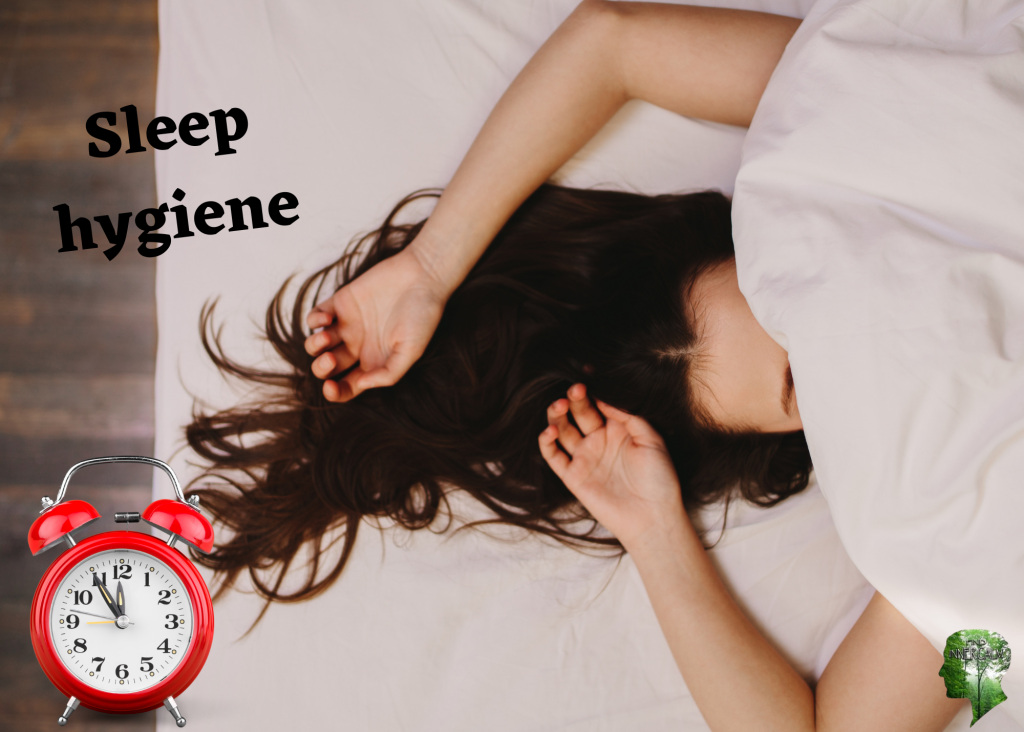Insomnia? A psychologist explains what can help.
Are you getting enough sleep? Do you have sleep problems? For some people this is a simple question. For other people the issue is a lot more complex so we will discuss the issue of sleep and insomnia in this post. We will also cover what you can do if your sleep quality is a concern.
Good sleep quality is the foundation upon which to build the rest of your day on. Sleep quality is one of the main elements of well-being, along with diet, exercise, and stress.
Learn More About Our Services For Insomnia
Insomnia- prevalence
Because of the potential impact of sleep on well-being, insomnia is one of the main concerns therapists hear from their clients. About 30% to 50% of adults in the general population experience occasional insomnia. Another 10% or more people experience chronic unrelenting issues with insomnia.
These numbers are even higher amongst those in therapy. This might be because sleep can be the ‘canary in the coal mine’ that signifies other problems in a person’s life. For instance, sleep can be affected by stress, low mood, and concerns such as PTSD, grief, chronic pain, and adjustment difficulties. As a result, improving the quality of one’s sleep is an important part of a treatment plan.
Insomnia- causes
Many people ask what causes insomnia. Sometimes the cause is obvious such as when someone is experiencing nightmares or is experiencing physical pain. Other times the exact cause may be more difficult to detect. Overall the main causes of insomnia are:
-Psychological symptoms or conditions such as stress, anxiety, depression, burnout, or stimuli overload.
-Sleep disorders such as sleep apnea can also cause insomnia and should be ruled out in cases of chronic insomnia.
-Physical illness such as arthritis, physical injury and associated pain, gastrointestinal difficulties, etc.
-Neurological disorders such as stroke, head injury, or Parkinson’s disease.
-Excessive stimulant use such as caffeine. Some people are sensitive to very small amounts of caffeine and may not be aware of that.
-Medications such as certain antidepressants, diuretics, etc.
-Lack of physical exercise.
-An inconsistent sleep schedule, which may be caused by shift work.
With so many possible causes, how is someone supposed to determine what is causing or contributing to their insomnia?
Keeping a sleep diary is key
This is where keeping a sleep diary or a sleep record can really help. A sleep diary or record is a log of your day-to-day routines and habits and usually includes the following:
–What time did you go to bed?
-How long did it take you to fall asleep?
-Approximately how many times a night did you wake up?
-If known, what was the reason for waking up?
-What times did you get out of bed?
-Approximately how many hours total did you sleep?
-How many caffeinated beverages did you consume and what time?
Then, to narrow down potential factors affecting your sleep the record can note:
–What other stimulants and/or medications did you take?
-Did you drink alcohol? If so, how much?
-Did you exercise? if so, what type and at what time?
-How fatigued were you during the day?
-Did you nap?
-Did you consume food within 3 hours of bedtime?
All of this information can be used to help your therapist, psychologist, or doctor assist you and come up with a treatment plan. A doctor can also determine whether a sleep study is in order.
How Insomnia is defined
Regardless of the exact cause, insomnia is not defined by the amount of hours one sleeps for. Insomnia is defined by someone not getting an adequate quality of sleep. To diagnose insomnia, the extent to which sleep quality that affects a person’s day-to-day functioning is also considered. The effects of insomnia on health and well-being make sleep one of the most important mental health concerns.
Insomnia- effects
The effects of insomnia often start with increased anxiety through the night about not sleeping. Then significant difficulty getting up and out of bed on time because of increased fatigue and grogginess. The effects of disrupted sleep then continue throughout the day by disrupting concentration or one’s ability to focus. It can also be more difficult to process and recall information. People can also experience increased irritability and lower mood. With all these concerns, it’s easy to see why insomnia can take a negative toll on one’s personal and professional life.
Insomnia- it’s not just about length of sleep
Sometimes people ask us whether insomnia just depends on how much sleep a person gets? Although the amount of sleep is important, sleep is a more complex issue than total hours of sleep.
One thing that makes sleep complex is that there are many different kinds of sleep. For instance, when someone is asleep they will shift through different stages of sleep such as REM sleep and non-REM sleep. REM sleep is thought to be very important for memory reconsolidation and stress recovery. REM sleep can often be disrupted when someone wakes up or becomes restless throughout their sleep cycle. This occurs frequently in individuals suffering from PTSD and associated nightmares.
People need continuous sleep to effectively move through their normal sleep cycles. The less disruption, generally the better quality of sleep. Because of this, the length of one’s sleep is not as important as the quality of their sleep. Having said that, most people will start to experience sleep deprivation if they consistently get less than 7-9 hours of sleep. They will certainly start to feel the effects of insomnia if the quality of their sleep is consistently poor.
Insomnia- what to do
Strategies to help address insomnia and improve sleep are referred to as “sleep hygiene”. To help ensure the best possible quality of sleep the following practices are recommended.
Stick to a routine- this is crucial to resetting your circadian rhythm. This means going to bed at the same time every night and waking up consistently at the same time. Try and do this even on the weekend.
Set an alarm to remind you for going to bed and getting up.
Use your bed only for sleep or sex but not other activities so that your body will associate your bed mostly with rest.
Get out of bed if you don’t fall asleep after 20 minutes. Read or listen to a meditation and then re-attempt to fall asleep.
Keep your clock turned away.
Do not nap during the day, even if you are tired. Wait as long as you can and then go to bed early if needed.
Get plenty of exercise- ideally at least 30 minutes a day. Engage in various exercise if possible.
Remember that downtime shouldn’t be bedtime. Ensure you wind down at least an hour before bedtime. Reading or relaxing or preferable to screen time as some studies have shown that screen time negatively affects sleep quality, especially for some people.
Avoid caffeine, especially after lunch.
Eat enough earlier in the day and do not eat for 3 hours before bed.
Make sure your room is dark and comfortable. If possible, invest in a good quality mattress. Remember that you will spend approximately 1/3 of your life in bed!
When insomnia persists- try these additional strategies
If you find yourself worrying or thinking at night when you are trying to sleep, try implementing a worry diary. This means writing down what is on your mind and then reassuring yourself that you will come back to it if needed, it won’t be forgotten now that it is written down.
If you are having trouble falling asleep or waking up and feeling increasingly frustrated, remember to use acceptance strategies. An acceptance strategy is key to reducing frustration. See our other article “Reducing anger and frustration” on the self-help page.
Another valuable approach is to use a guided sleep meditation or a sleep hypnosis. These are available for free on YouTube and you can also try out an app such as Calm or Headspace. There is always a free version of most apps.
If you are attending to all the above sleep hygiene practices and sleep strategies and still find that you are suffering from insomnia, it may be time to consult a doctor. Consider consulting with your family doctor, a naturopathic doctor, or a psychologist.
Therapists are also often trained on how to assist with sleep disruption. Your doctor or therapist will start with identifying potential causes of your sleep disruption to ensure nothing important has been missed. Then your therapist will assist with more formally implementing the sleep hygiene practices discussed above. If these are not enough, your therapist can usually assist by implementing a more formal treatment plan for insomnia.
When insomnia persists despite ongoing efforts, it’s important to make sure you are addressing any underlying issues related to your physical health or mental health. For instance, stress, depression, anxiety and particularly PTSD can have very disruptive effects on sleep.
While any potential issues are being worked on, being progress can take time, sometimes people can benefit from a sleep aid in the meantime. It can be helpful to discuss options with a doctor, or even a pharmacist. Because sleep medications can have side-effects or possible dependency issues, it is recommended to first visit a naturopathic doctor in case your insomnia can be addressed with more natural or holistic means.
You can also contact us to set up a consultation to see how a psychologist or therapist can help address your insomnia. If you already know that you have insomnia and want to schedule an appointment you can immediately book an appointment through our online booking site.
This post was written by Dr. Jennifer Barbera, Ph.D, clinical psychologist.
References:
https://www.health.harvard.edu/staying-healthy/insomnia-restoring-restful-sleep




